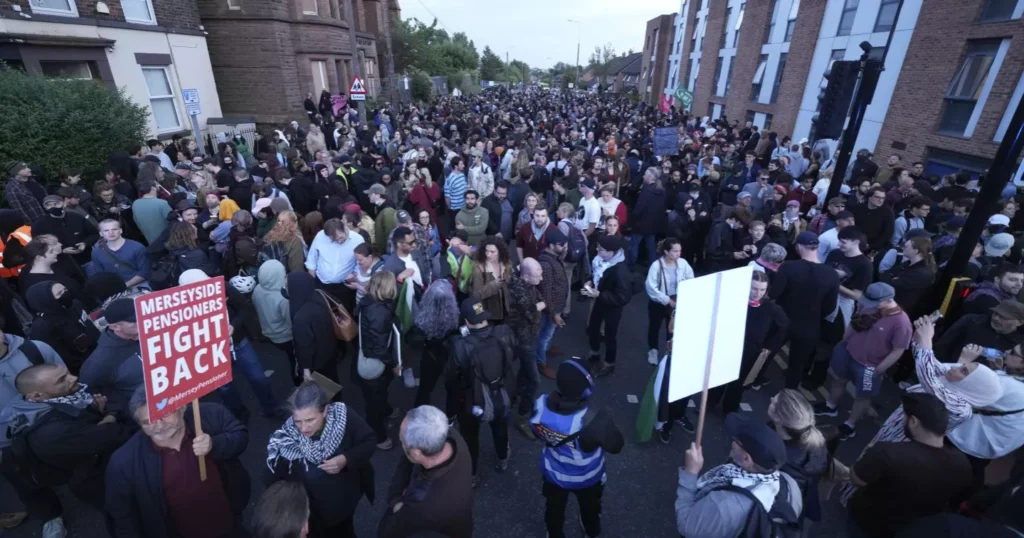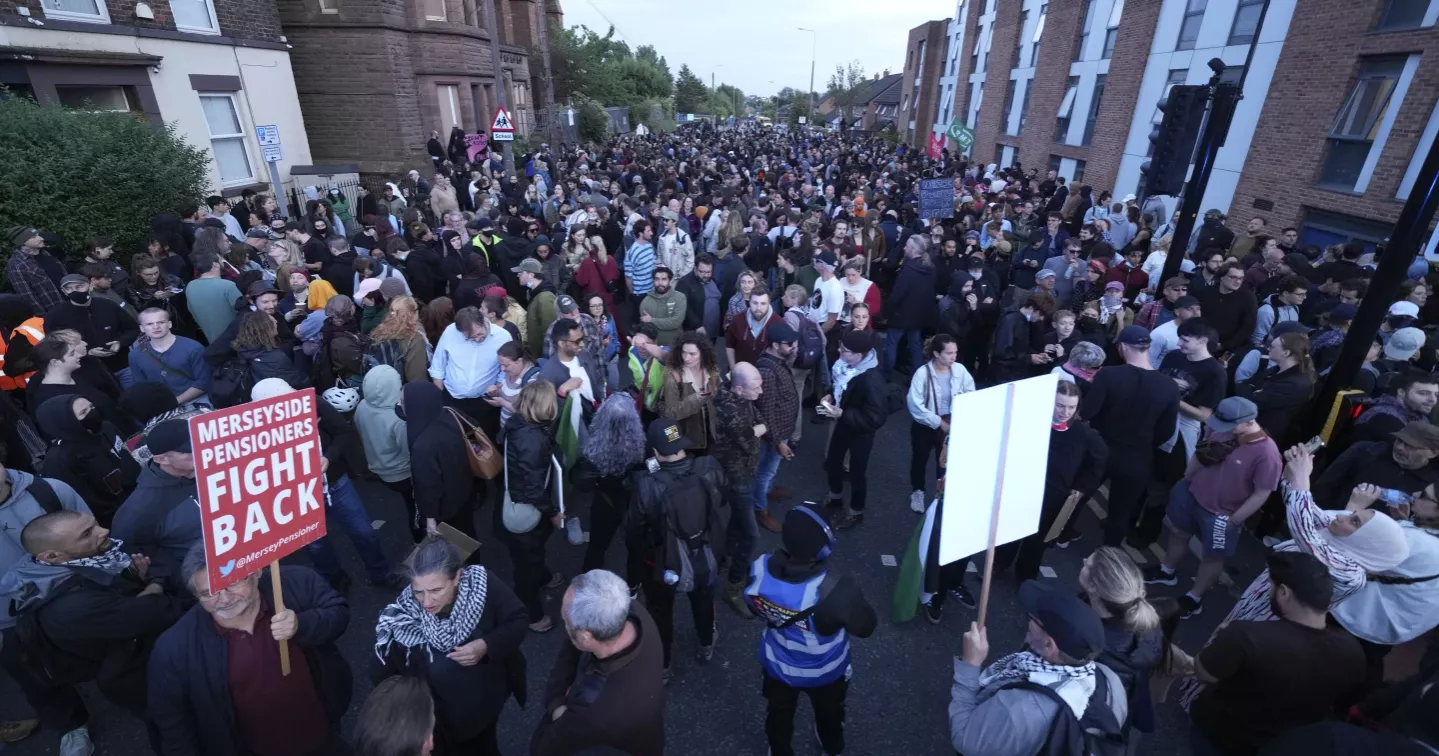The United Kingdom has been experiencing a heightened state of tension and unrest, particularly concerning issues related to race, identity, and national history. Over recent years, these tensions have manifested in various ways, from protests and counter-protests to more violent confrontations between different groups.

Background: A Divided Society
Table of Contents
Britain, like many other countries, has been grappling with its colonial past and the racial inequalities that have persisted into the present day. The murder of George Floyd in the United States in 2020 acted as a catalyst, sparking a global movement against racism. The UK was no exception, with widespread protests under the banner of Black Lives Matter (BLM). These protests were not only a response to events in the U.S. but also a reflection of the deep-seated issues within British society, including systemic racism, police brutality, and the legacy of colonialism.
In response to these protests, there has been a resurgence of far-right activism. Far-right groups, emboldened by a wave of populism and nationalism across Europe, have sought to push back against what they see as an attack on British identity and history. They have organized their own rallies, often in direct opposition to BLM protests, leading to clashes on the streets of British cities.
Recent Unrest: A Clash of Ideologies
The most recent unrest in the UK has been marked by a series of confrontations between anti-racism campaigners and far-right activists. These events have been characterized by a tense atmosphere, as both sides represent deeply polarized views on the direction of British society.
Anti-racism campaigners, including those from BLM and other allied organizations, have been advocating for a re-examination of Britain’s history, particularly its colonial past and the role it played in the transatlantic slave trade. They have called for the removal of statues and monuments that they believe glorify figures associated with racism and colonialism. This has been a highly controversial demand, sparking intense debate across the country.
On the other side, far-right groups have positioned themselves as defenders of British heritage. They argue that the removal of statues and the re-examination of history are tantamount to erasing the nation’s identity. These groups have organized counter-protests, often under the guise of protecting national monuments, which have led to violent clashes with anti-racism demonstrators.

Government Response and Public Opinion
The UK government, led by Prime Minister Rishi Sunak, has faced criticism for its handling of the situation. While the government has condemned violence on all sides, its response has been seen by some as overly cautious and reluctant to confront the root causes of the unrest. The government has also been criticized for not doing enough to address the concerns of anti-racism campaigners, particularly regarding police reform and the decolonization of education.
Public opinion in Britain remains deeply divided. Polls indicate that while there is broad support for the principle of racial equality, there is also significant resistance to the idea of removing statues and re-evaluating history. Many Britons feel that their national identity is under threat, and they are wary of what they perceive as the imposition of a new, politically correct narrative.
The Role of Social Media
Social media has played a crucial role in both mobilizing anti-racism campaigners and far-right activists. Platforms like Twitter, Facebook, and Instagram have been used to organize protests, spread information (and misinformation), and galvanize support for various causes. However, social media has also been a double-edged sword, contributing to the polarization of public opinion and the spread of extremist views.
Far-right groups have been particularly adept at using social media to spread their message and recruit new members. They have exploited fears about immigration, crime, and the loss of national identity to build a base of support. Meanwhile, anti-racism campaigners have used these platforms to highlight instances of racial injustice and to call for systemic change.
The Threat of Further Unrest
Despite the efforts of anti-racism campaigners to confront and push back against the far right, Britain remains on high alert for further unrest. The underlying issues—racial inequality, the legacy of colonialism, and national identity—have not been resolved and continue to simmer beneath the surface.
The potential for further violence is high, particularly if far-right groups continue to organize counter-protests in response to anti-racism demonstrations. The risk is exacerbated by the current political climate, where populist rhetoric and nationalist sentiments have gained traction. There is also the possibility of lone actors or small extremist groups engaging in acts of violence, further destabilizing the situation.
The Path Forward
To prevent further unrest, the UK must address the root causes of the current tensions. This includes acknowledging and addressing the country’s colonial past, tackling systemic racism, and fostering a more inclusive national identity that reflects the diversity of modern Britain.
Dialogue between different groups is essential. While the debates over statues and monuments are symbolic, they reflect deeper issues that need to be addressed. This includes reforming the education system to provide a more balanced view of British history and ensuring that all communities feel represented and heard.
The government also has a role to play in fostering unity and reducing polarization. This means taking a firm stand against all forms of extremism, whether it comes from the far right or any other quarter, and promoting policies that address the concerns of marginalized communities.
Conclusion
Britain’s struggle with issues of race, identity, and history is far from over. While anti-racism campaigners have made significant strides in confronting the far right, the country remains on edge, with the potential for further unrest looming. The path forward will require a concerted effort from all sectors and ordinary citizens to build a more just and inclusive Britain. Only by addressing the underlying issues and fostering a sense of shared identity can the UK hope to move beyond this period of division and unrest.








